August 1914. Did the Russians know about Poland "from sea to sea"?
A. Blok
The Stolypin idea of separating Kholm region nevertheless became a reality, though only after the death of an outstanding prime minister, when the real threat of a world war already hung over the Old World. Soon the Balkans, this gunpowder cellar of Europe, shook two bloody wars in a row.
The claims of small European nations for independence became more and more distinct, but only the lazy did not speak about the coming collapse of Austria-Hungary and the Ottoman Empire. In the meantime, Poland continued to live by expectation and put up with the next loss of territories that once belonged to the state “from sea to sea” - “moc od morza do morza”.
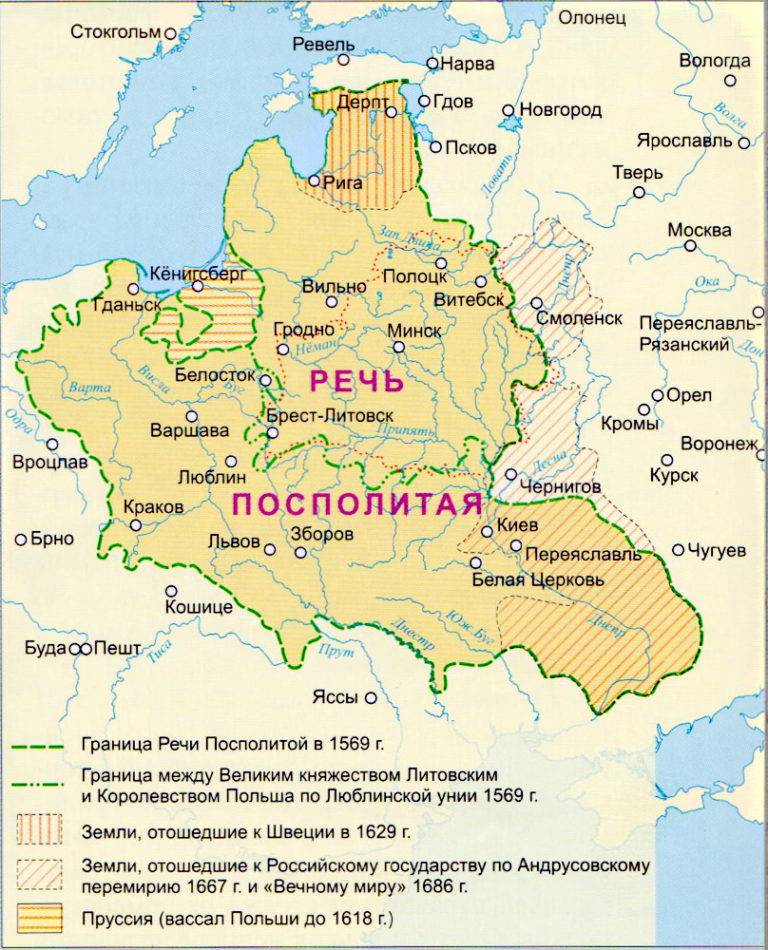
Even in its best times, as in the 17th century, the Polish-Lithuanian Commonwealth was by no means a state "from sea to sea"
Farewell to the Kholm region
The bill of the Ministry of Internal Affairs of the Russian Empire "On the separation from the provinces of the Kingdom of Poland of the eastern parts of the Lublin and Siedletsk provinces with the formation of a special Kholm province" was submitted to the commission for sending legislative assumptions to the 4th session of the III State Duma. Commission examined in detail historical, religious and ethnographic material relating to the Kholm region. The number of Orthodox people in the eastern counties of the Lublin and Siedletsk provinces in 1906-1907 was determined according to various sources from 278 to 299 thousand. According to official information, after the manifesto on April 17, 1906, 168 thousand people converted to Catholicism, while the number of "stubborn" in 1902 was determined to be only 91 thousand.
The Commission noted: "... the rest went to Catholicism" by mistake "(1). The number of Russian-speaking population of the region was estimated at the time of the discussion in 450 thousands. This number did not include about 100 thousands of Orthodox who speak Polish, and about the same Catholics who spoke Russian. Thus, according to these data, in the 11 eastern districts belonging to the Kholmshchina region, the Little Russian population made up the majority. Considering this data, the discussion was not long. talo fact, the Commission considered the allocation of Holm "absolutely necessary, since otherwise the Russian population of this region face in a short time complete opolyachenie".
In the general meeting of the Duma, a bill on the allocation of Kholmshchina was considered at the 5 session of November 25 1911. It was represented by nationalist D.N. Chikhachev, who completed his long speech is very impressive. "The venerable leaders of the former bureaucratic regime, who had departed into eternity, left us a heavy legacy in the field of Polish-Russian relations, a legacy, especially a difficult one in resolving the Hill issue; they believed, unfortunately, half-measures in saving them the question as a question of national, nationwide significance, as a question of the well-known internal division of Russians and Poles within the united Russian Empire.
Unfortunately, the idea of a coherent and systematic national policy was alien to many of them; other behind-the-scenes influences were too strong, often of anti-Russian nature;
The Minister of the Interior Makarov, speaking with explanations, noted the protests against the allocation of Kholm region by the Poles abroad, who had launched a campaign against the “new division of Poland”, and in response spoke out against an attempt to view Polish lands as something more than one part of the Russian Empire.
Not the poorest landowner Lubomyr Dymsha, a well-known and quite popular lawyer, spoke out from the Poles, who recalled that the Kholmsky project had been rejected eight times and based on false statistics. Against the charge of threatening the margin of the region, he, naturally, put forward arguments about the real threat of complete Russification by administrative measures. The final speech, of course, was extremely pretentious: “By adopting this bill, you will manifest the right to force. Yes, you are strong, you can do with this part of the Kingdom of Poland, as at this moment, from your point of view, this circumstance will require. But the power of the right - truth, and justice will remain on our side. (Shouts on the left.) "(3).
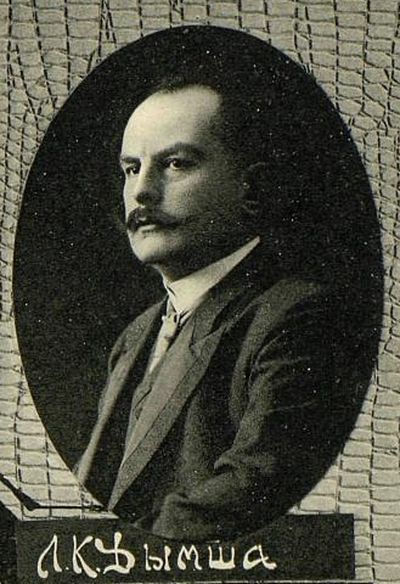
Polish Duma deputy Lubomir Dymsha dismissed the threat of policing, scaring opponents with Russification
In response, Bishop Eulogius remarked about the statistics that, with all its imperfections, it was checked and processed three times at the request of the Polish Kolo, and there are no reasons to consider these statistics as biased. When asked about the purpose of separating Kholmskaya Rus from the composition of "alien to her Poland", the priest answered "directly and briefly": this is necessary for the salvation of the Russian people dying there (4).
The discussion dragged on, Bishop Eulogius and Chikhachev spoke several more times, there were new problems with separate articles, but in the end the Kholm region was singled out. Summing up, we note that the bill introduced in the III State Duma as early as 19 of May 1909 of the year was approved by the Duma on the report of the drafting committee only three years later - 4 of May of 1912 of the year. After being transferred to the commission on the direction of legislative assumptions, it was discussed there until November 1909.
For two years, from November 17 1909 to November 20 1911, he was discussed in a special "Kholm" subcommittee. The report of the commission was submitted to the general meeting of the Duma 7 in May 1911, its discussion in the Russian parliament took 17 meetings. In the end, the deputies made a number of changes to the bill, and, above all, subordinated Kholmsk Governorate directly to the Minister of Internal Affairs, at the same time expanding the boundaries of the province to the West.
Legislation was not applied to the Kholm province, which operated in the western region to limit the growth of Polish and Jewish private land ownership. In order to promote Russian land tenure, the Duma recognized the need to extend to Kholmshchyna the rules on exemption from the payment of duties of acts when transferring estates from Polish landowners to Russian. Benefits and privileges extended to Catholics only Russian nationality. Nicholas II approved the law 23 June 1912 of the year.
Before the war, there were only two years left.
The appeal of the Grand Duke
The Sarajevo murder brought confusion in many souls, but it gave the main thing to tsarist propaganda. weapon - national and half-forgotten Pan-Slavist slogans. Contemporaries recognize that the ideological preparation for the war was frankly weak (5), especially among the rank and file. However, the officers, up to the highest, were not too burdened with knowledge of the goals and objectives of the war. What can we say about the population of the border areas, for the most part non-Russian.
At the very top, in St. Petersburg, a peculiar balance reigned - on the one hand, the military party and apologists founded literally on nothing of impudent imperial politics, ready to seize both the straits of both Galicia and the German part of Poland For which several million more foreigners in Russia are just an extra burden. The “Appeal to the Poles,” signed by the supreme commander, turned out to be very helpful at the time of national unity, when both groups of politicians who supported the tsarist military action were looking for support for their position. Moreover, it turned out that the moment was chosen very well - the Russian regiments had just entered the land inhabited mainly by Poles.
Although in reality, the manifesto came into being almost by accident - contemporaries say that Nicholas II gave the go-ahead to prepare the document under the immediate impression of the invasion of Pilsudski legions in Russian Poland. The "Legionnaires" took up the "re-creation of Poland" on August 6, crossing the borders of the Russian Empire. They even had a plan for an anti-Russian uprising, but for a start the matter was limited to only timid attempts to form new government bodies. However, soon the Austrian command suspended them due to the passivity of the population.
An urgent act was required to characterize the new approach of St. Petersburg to relations with Poland. The Cabinet of Ministers in a few hours made up the text of the manifesto. The document on the instructions of sd Sazonov wrote the vice-director of the Ministry of Foreign Affairs Prince Grigory Trubetskoy.
But on whose behalf to release the manifesto? In order to give it a completely official character and in case of something to step back from him, it was necessary to do it not on behalf of the Tsar and not even on behalf of the government. The problem was solved quite simply. 58-year-old uncle of the emperor, Grand Duke Nikolai Nikolayevich, who had just taken over the post of supreme commander-in-chief, a soldier to the bone, known for his sympathy for the Slav brothers, was a better candidate for signing the appeal. The Grand Duke has behind him 40 years of military service, a brilliant record of service, starting with participation in the Turkish company 1877-78 and a huge prestige among the troops. Since 1909, the “formidable” uncle, the former commander of Nicholas II in the Life Guards Hussars, led the Romanov family council, his name gave the Appeal a corresponding impressiveness and at the same time some detachment from official circles.
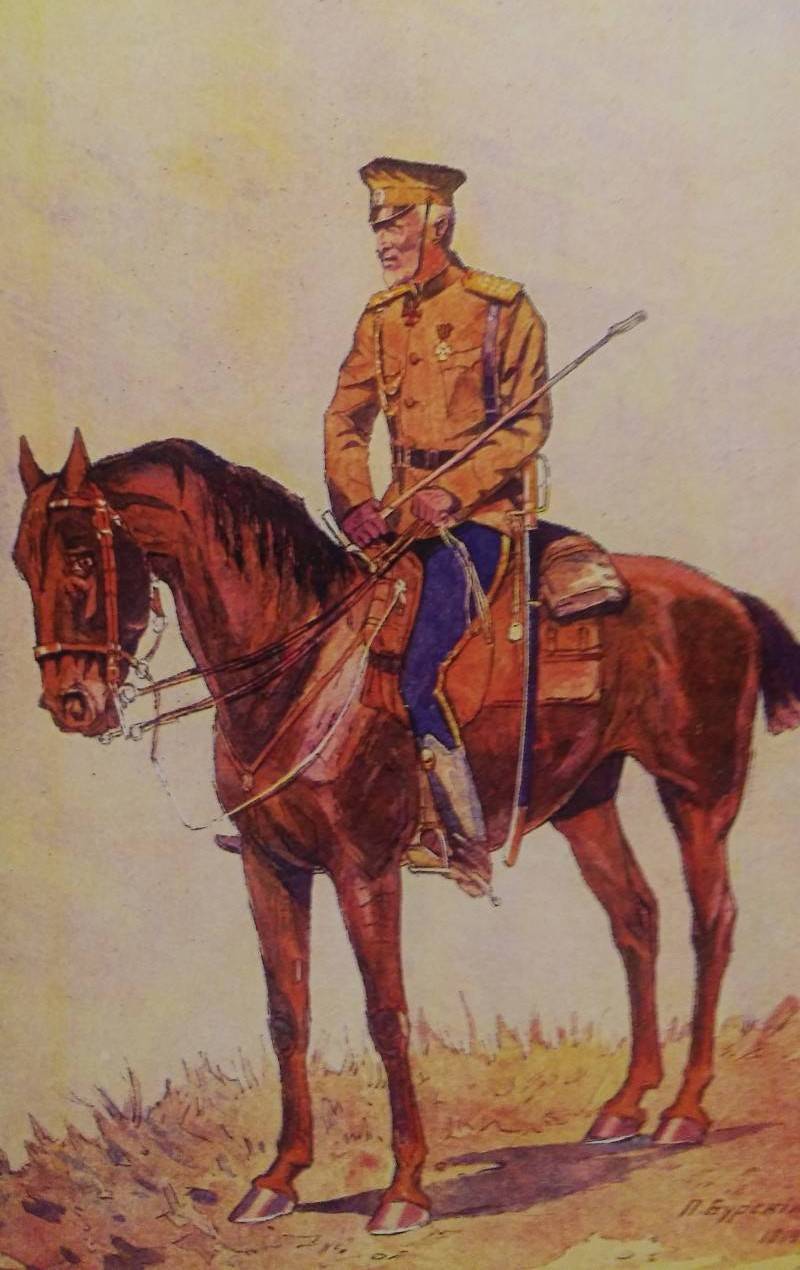
The Grand Duke and Supreme Commander was not only loved by photographers and artists, he was adored and feared in the army
Nicholas II could not adequately address the Poles of Austria and Prussia as his future subjects, and the Grand Duke, on the contrary, would not have exceeded his role as Russian commander in chief, turning to the Slavs who were to be liberated. And then what the hell is not joking? It is possible and on the new Galician, and even the Polish throne to climb. The father of the commander-in-chief, Nikolai Nikolayevich Sr., for example, with good reason for 40 years before, expected to occupy the Bulgarian throne.
Through the chief of staff of the Supreme General NN Yanushkevich, the text of the appeal was coordinated with the Grand Duke and on August 14 was allowed for publication. The chairman of the Polish group of the State Council, Count Sigismund Velepolsky, personally translated the “Appeal” into Polish.
So, the document:
"1 (14) August 1914
Poles, the time has come when the cherished dream of your fathers and grandfathers can come true.
A century and a half ago, the living body of Poland was torn to pieces, but her soul did not die. She lived in the hope that the hour of the resurrection of the Polish people, its fraternal reconciliation with great Russia, would come.
Russian troops carry you the good news of this reconciliation. Let the borders that cut the Polish people apart will be erased. May he reunite together under the scepter of the Russian Tsar. Under this scepter, Poland will reunite, free in its faith, in language, in self-government.
Russia expects one thing from you: the same respect for the rights of those nationalities with which history has linked you. With an open heart, with a brotherly outstretched hand, great Russia is coming to you. She believes that she did not rust the sword that smashed the enemy under Grunwald.
From the shores of the Pacific Ocean to the northern seas are moving Russian rati. The dawn of a new life is engaged for you. May the sign of the cross, the symbol of the suffering and resurrection of the nations, shine forth in this dawn.
Supreme Commander, Adjutant General Nikolai ". (6)
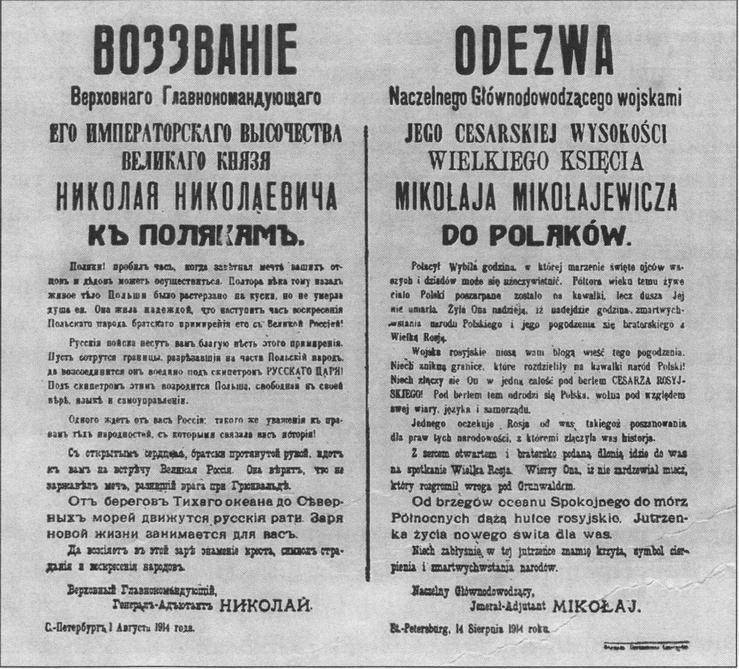
On the morning of August 16 1914, the manifesto was made public. The text of the “Appeal” makes a strong impression, despite the fact that the word “autonomy” does not even sound in it, and the revival is scheduled “under the scepter of the Russian Tsar”. Poland is united in its faith, language and self-government! What else do they need?
The propaganda effect of the "Appeal" exceeded all expectations. Both within the empire and beyond its borders. Sergei Melgunov recalled: "Everyone lost consciousness somehow ... Everywhere you see the polite delight of the announcement of the commander in chief regarding Poland." Pavel Milyukov did not conceal that for a long time he could not recover from the force of the impression that the manifesto made on him. The Russian Vedomosti praised the state-legal union of all Polish lands with Russia, promised in the appeal of the Russian commander-in-chief.
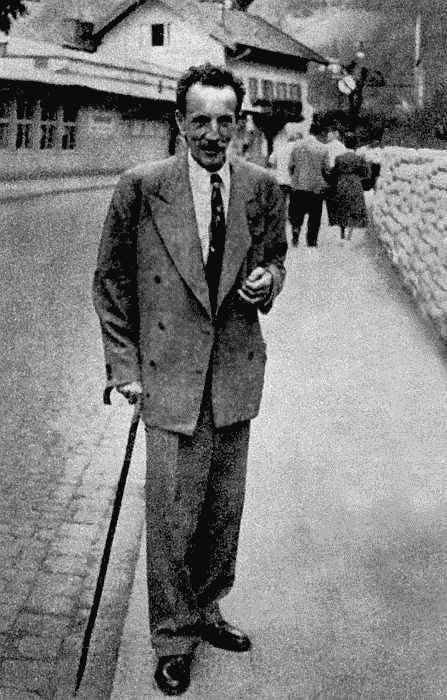
Sergey Melgunov, a historian, whose work in Soviet times could only be found in special security
However, the same Sergey Melgunov wrote in his diary only three weeks later: “In connection with the grand-ducal appeal, it is interesting to note Milyukov’s article in Rech ... A naive person, apparently, our historian! At such moments, he hears "the course of history," "feels the beat of her heart." One might think that the Russian government never sowed hostility between nationalities ”(7).
Notes:
1. State Duma 3-th convocation. Review of commissions and departments. Session IV. SPb., 1911. p. 211-244.
2. State Duma 3-th convocation. Stenographic reports. Session 5. Part I. p. 2591-2608.
3. Ibid, page 2620-2650.
4. Ibid, page 2650-2702.
5. A. Brusilov. My Memories, M.1946 G., p.69-72.
6. Y. Klyuchnikov and A. Sabanin. The international policy of modern times in the treaties, notes and declarations. M. 1926, Part II, p. 17-18.
7. S. Melgunov. On the way to the palace coup, Paris, 1931, p. 14, Memories and diaries. M., 2003 G., p. 244.
- Alexey Podymov
- Russian answer to the "Polish question"
Poland: on the ruins of three empires. Russian answer to the Polish question. 2 part
Otto von Bismarck: “Who is this Europe?” The Russian answer to the “Polish question”. 3 part
Pole you can not be. Russian answer to the Polish question. 4 part
Kholm province. Is this Polish land too? Russian answer to the Polish question. 5 part
Where are the borders of Poland? Russian answer to the "Polish question". Ending
The Poles are changing the front. Eve of World War I, the main enemy is Germany
Information